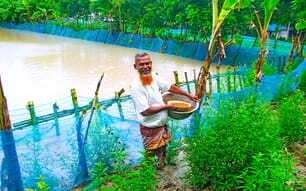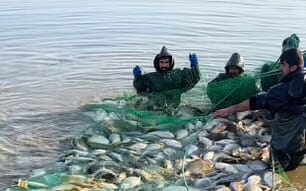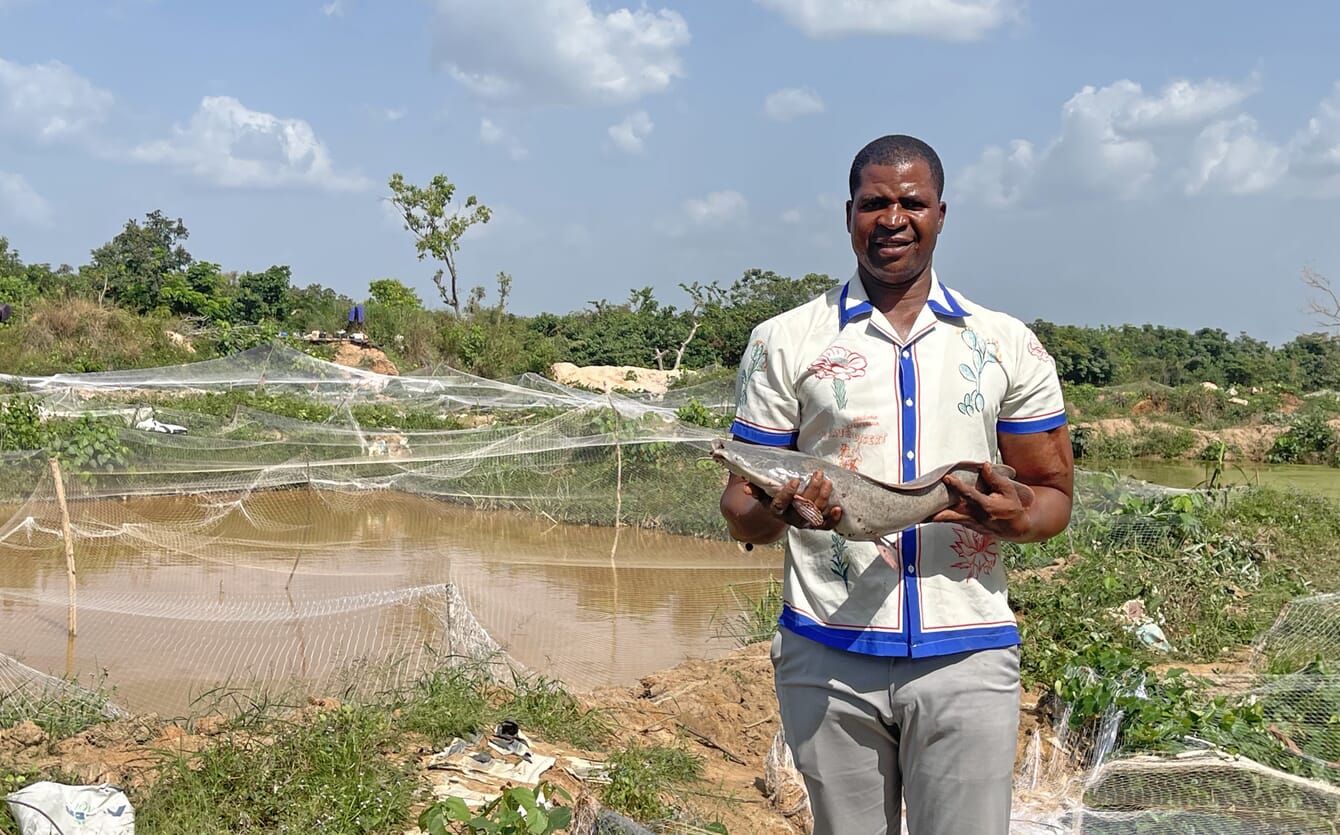
Can you tell us a bit about your background?
From 1993 until 2007 I worked in the motor parts trade in Burkina Faso, but when I was about to get married to a Fulani from Burkina Faso I started thinking of returning to Nigeria so I could raise my children in the Igbo culture. Even though I was successful in the motor part business, after speaking with a lady who manages a catfish farm inside the Ojo Agric Settlement, in Lagos. I decided to start my own catfish farm, called St Mosco FeedNation, in 2011.
What inspired you to embark on a career in aquaculture?
For many years, Nigeria has relied on imported fish to meet the domestic demand. This inspired me to start a company that will meet the demands of the growing population and help to make Nigeria a self-sufficient country for fish.
I was also interested in creating a family business for my children to continue.
What are your key focus areas?
We are into farming, smoking and drying catfish. We sell retail and wholesale. Before now, we hatched our own fish for grow-out. But I decided to focus on producing to help us reach our financial goal, which is to reach an annual turnover of one billion naira (€1,090,654), up from N780 million (€850,576) last year. Another mission is to produce 1,000 tonnes of fish next year. After that, I plan to create a hatchery.
What sort of production system do you operate?
We initially used 28 tarpaulins for growing the fish but have now dug 100 earthen ponds. The water comes in from one end and goes out in the other. This system always makes the water clean.
We have six hectares of land between two farms and last year we produced about 560 tonnes of catfish. The bigger farm has 83 ponds and the small one has 17. The smaller earth ponds are 8 by 6 metres and these take 10,000 fish. Our big earth ponds take between 20,000 and 30,000 fish and measure 10 by 15 metres.
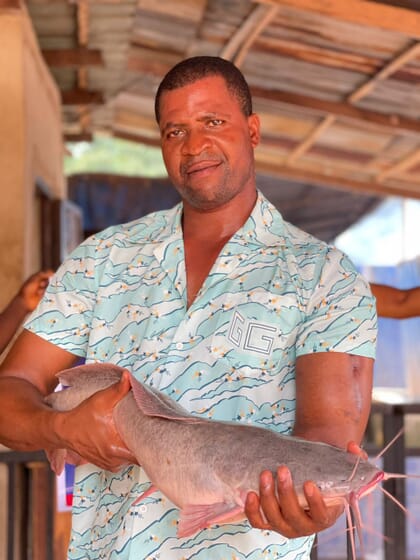
St Mosco FeedNation produced about 560 tonnes of catfish last year between the company's two farms
How do you source your juveniles?
From a hatchery in Warri, in Nigeria’s southern Delta State. Every two weeks, they send between 100,000 and 150,000 fingerlings to us.
What have been the major challenges in setting up – and operating –your farm?
The main challenge in our big farm is flooding. I lost about 200 to 300 million naira (about €326,934) to flooding this year. Flooding comes when we don’t expect it and it’s something we can’t control. But we keep learning.
Another challenge is theft, which I have experienced many times. Although I have about eight security people working for me, we still experience theft.
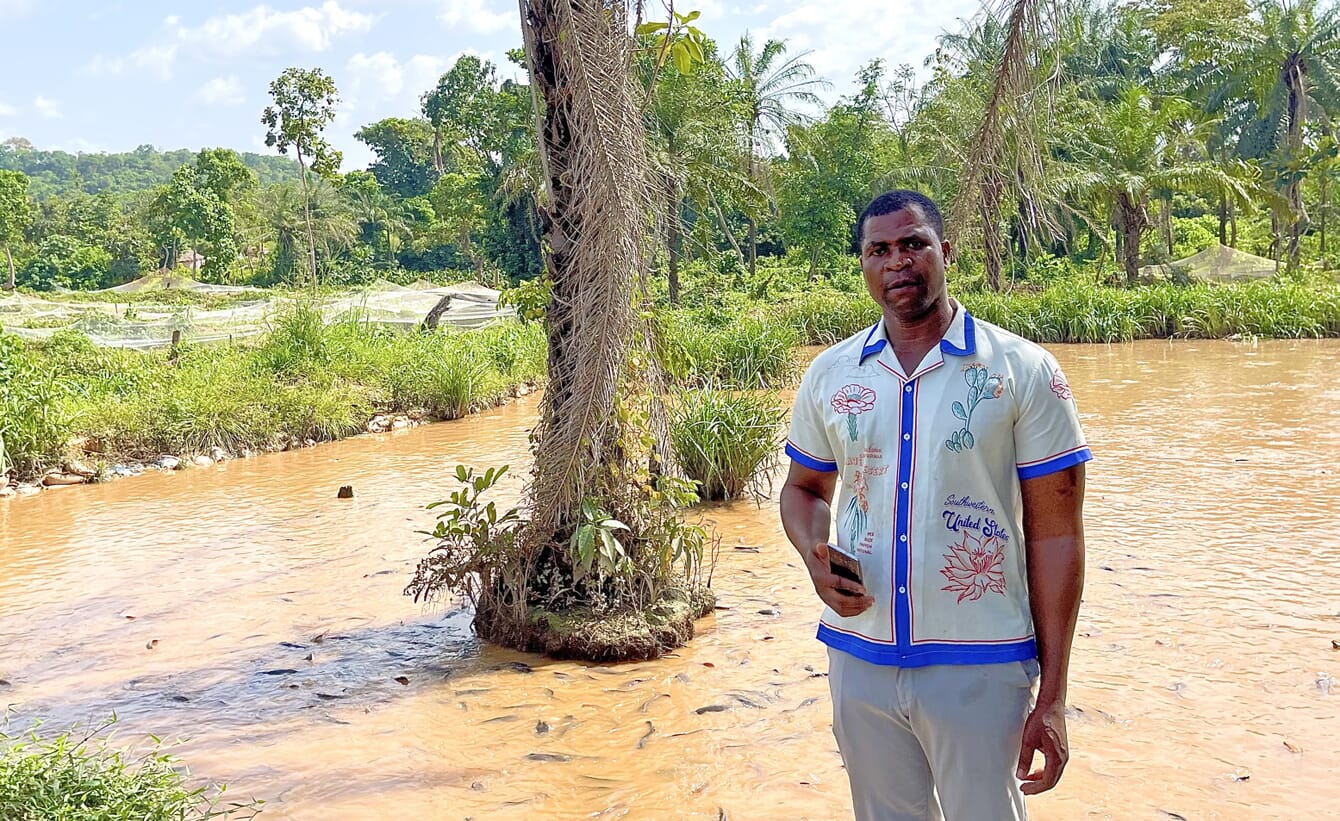
The company's two farms, which are spread across six hectares of land, consist of small 8x6 metre ponds that can take 10,000 fish and large 10x15 metre ponds that can take between 20,000 and 30,000 fish
What’s your typical day at work?
Every morning, I check the fish. After that I will speak with my two managers to know the needs of the 35 workers, how they will harvest fish, and how the market is going.
From there, I check the water quality and also join the workers in feeding the fish so I can know how the fish are responding, because their response to the feed can affect growth. If they are not responding well, we change the water immediately.
After that, I will speak with the manager of our feed supplier because our fish eat about 200 bags of feed per day. During harvesting, my manager supervises the workers in the big farm, while I supervise the workers in the small one. We put the fish in a separate pond and we sell them directly from there. And, as we are harvesting, we are also restocking.
In the afternoon, I leave the farm to pick my kids up at school and continue with my family life.
What’s your biggest achievement to date?
The number of customers gives me joy. We have between 300 and 500 people coming to buy fish daily. People trust us and we sell from 1,000 to 2,000 kilograms of fish every day.
I am so happy because my fish farm is the only farm in the south-east where you go everyday and buy fish. People come from neighbouring Nigerian states to buy fish. It gives me joy seeing people come from different places to my place. I have also received people from Singapore, Israel and Germany to teach me new things about aquaculture.
My business in Burkina Faso is still alive but not as before. And I have no regrets because the fish farm’s turnover is 300 percent higher.
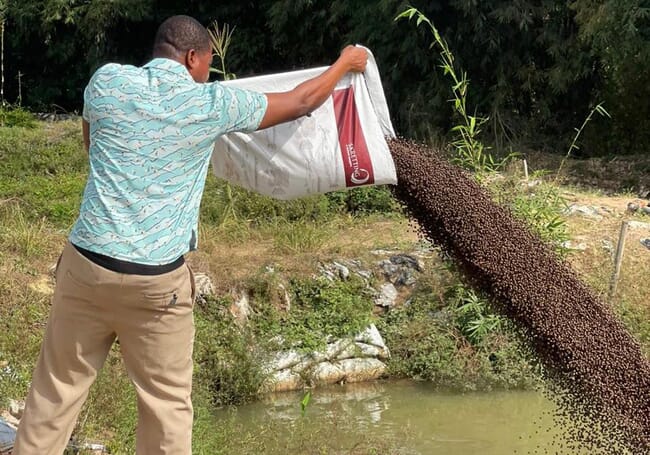
Njoku Uwa credits the feed company Skretting as being particularly helpful by providing discounts when he lost a large number of fish due to flooding
Are there any individuals or organisations that have particularly
helped you?
Funds to run the fish farm came from my business in Burkina Faso. However, Skretting, the feed company, has helped in giving discounts, especially when I lost a huge number of fish in floods this year.
What’s your ultimate ambition in the aquaculture sector?
To create a lasting legacy and a family business for my children to continue. Also, I want to see a year that Nigeria will become fish sufficient and not need to import fish to feed the nation.


